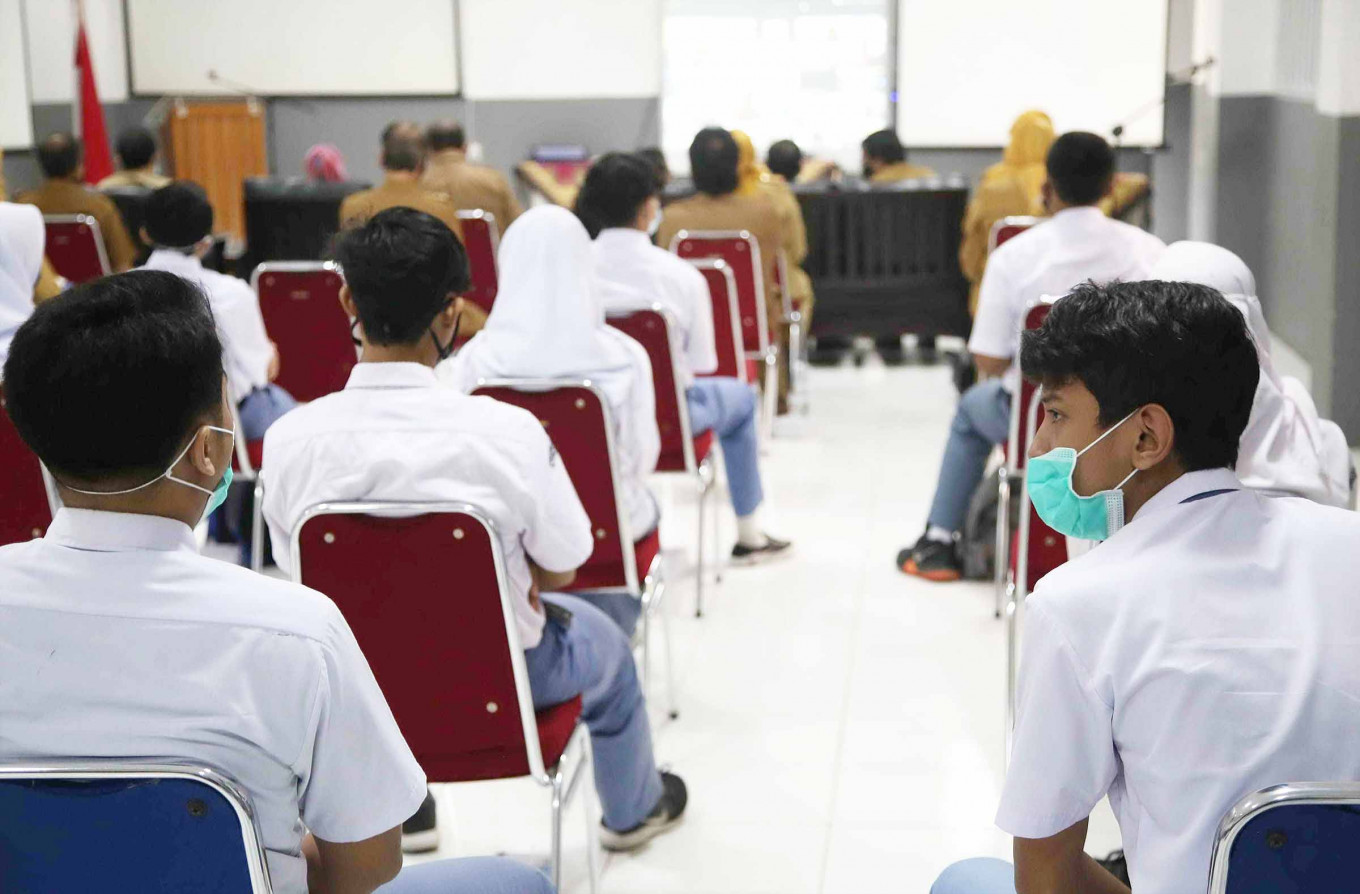Popular Reads
Top Results
Can't find what you're looking for?
View all search resultsPopular Reads
Top Results
Can't find what you're looking for?
View all search resultsSafeguard children’s future
With no signs as to when we can beat the pandemic, allowing children to leave home for classes only amounts to exposing them to the virus.
Change text size
Gift Premium Articles
to Anyone
A
s the new school year began on Monday, millions of students and teachers across the country learned how risky education would be if we maintained the “old normal” in these times.
Over 1,300 students of the Army’s Officer Candidate School (Secapa) in Bandung, West Java, and Indonesian Military Police Training Center in neighboring Cimahi, their teaching staff and instructors have tested positive for COVID-19. The soldiers were attending an education and training program conducted face-to-face, reportedly following strict health protocols. They also lived in boarding houses during the program, as had been practiced for many years.
Previously about 300 police officer candidates attending courses to win promotion in Sukabumi, West Java, contracted the virus in April.
Despite the protocols, which Army chief Gen. Andika Perkasa said had been in place since March, the virus transmission was difficult to avoid. One could imagine the SARS-CoV-2 virus, which causes COVID-19, spreading easily from one student to another as they interacted 24 hours a day, even sharing rooms, for weeks, if not months.
As the risk of virus transmission remains high, the Education and Culture Ministry has allowed schools to reopen with face-to-face learning only in areas classified as green zones, or low risk, and with the consent of the regional head and the students’ parents.
A number of regional heads have rightly responded to the ministry’s policy. Due to concerns about the safety of students and school staff, the local administrations of Jakarta, and Tangerang and South Tangerang in Banten, for example, have decided to extend online learning.
With no signs as to when we can beat the pandemic, allowing children to leave home for classes only amounts to exposing them to the virus, even if they follow the protocols – wearing face masks, frequently washing their hands with soap and staying at least 1 meter away from one another. The risks will increase in the case of students with special needs, or those who greatly depend on other people.
Online, rather than face-to-face, learning should be the only option if we are to protect our children. School orientation programs, which are usually organized for new students, should also follow the same mechanisms.
The impact of the COVID-19 pandemic on education may be more devastating than we have imagined. Not only will the pandemic widen the gap between children from well-off families and their poverty-stricken peers as the latter cannot access the internet. The health crisis may also force poor children to drop out of school to help their parents make a living.
In its latest report Save Our Education, London-based NGO Save the Children estimates deep cuts in education budgets that could reach US$77 billion in the world's poorest countries over the next 18 months. If the recession worsens, this figure will climb to $276 billion by the end of 2021.
The pandemic has forced the government to reallocate the COVID-19 response budget to mitigation of the pandemic’s impact on the economy. To safeguard our children’s future, the mitigation efforts should include funds to keep children who are near or below the poverty line in school.










